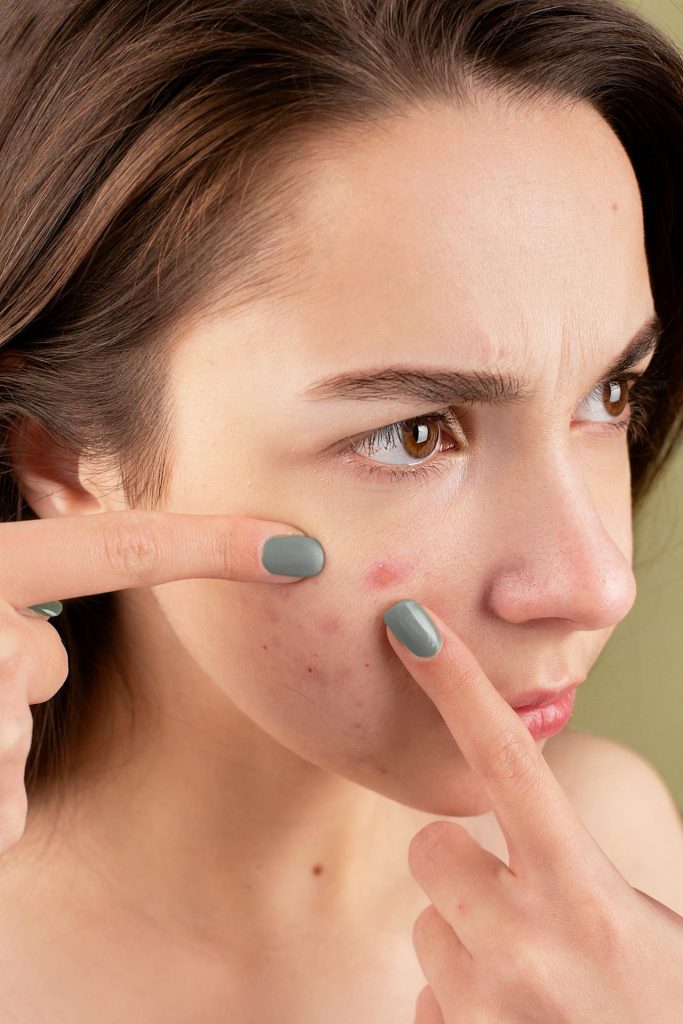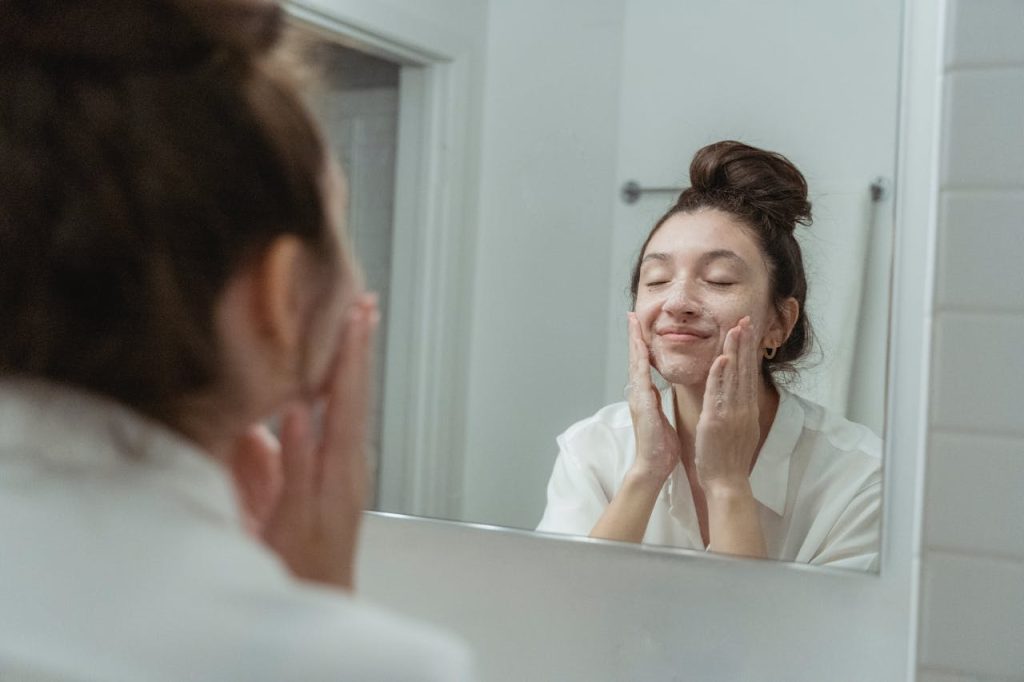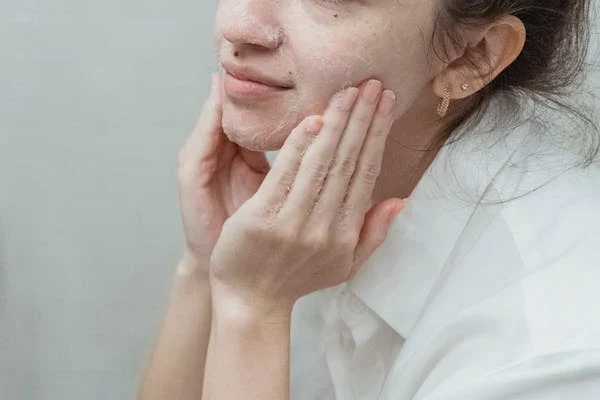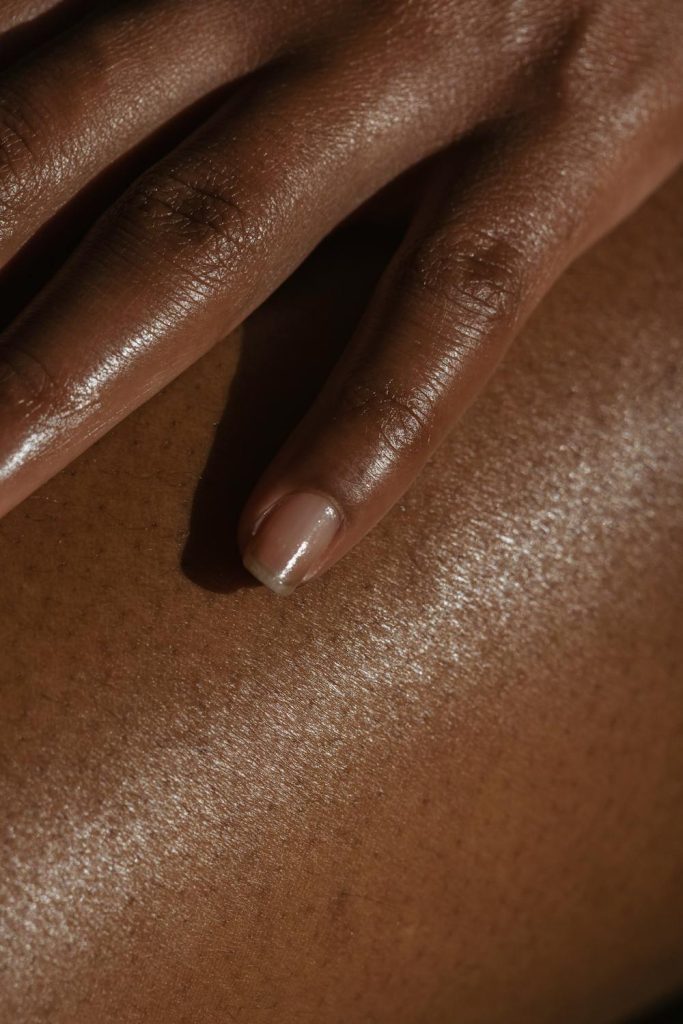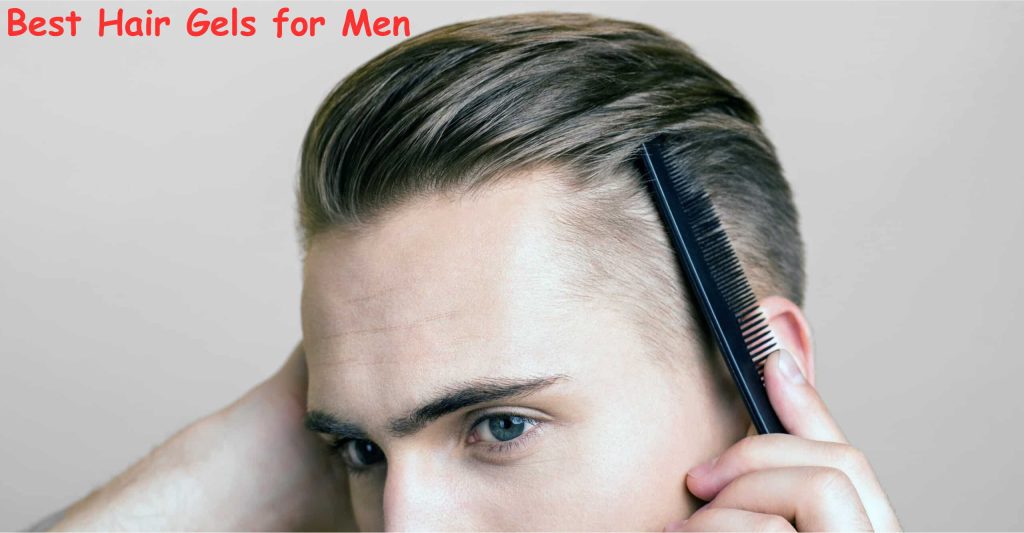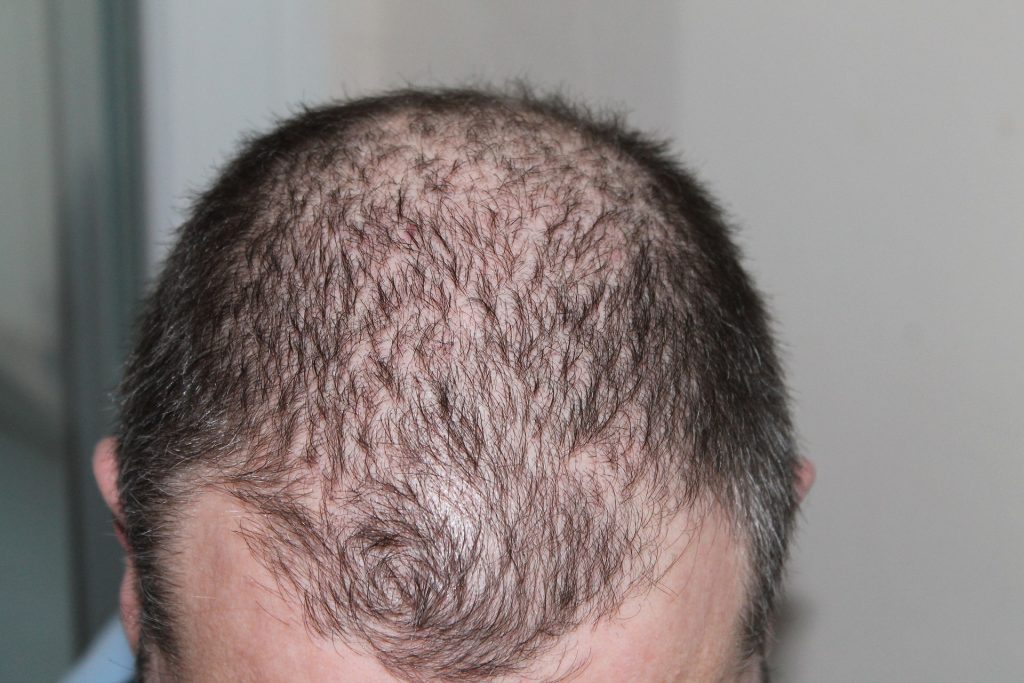
Table of Contents
ToggleStop Hair Loss Immediately and Reduce Hair Fall: Regain Your Confidence, Strand by Strand
Imagine: you’re in the shower, getting ready for your day. But as you wash your hair, you notice a bunch of hair stuck to your fingers and clogging the drain. You start to worry as you run your hand through your hair, and even more hair comes out. Brushing your hair only makes things worse, with lots of hair falling onto the counter. You must be looking for the tips about how to reduce hair fall and stop hair loss immediately, the daily struggle with losing hair is something many people go through, and it can make them feel bad about themselves, scared, and helpless. Dealing with hair loss all the time can make you lose your confidence and feel shy around others.
This comprehensive guide about how to reduce hair fall and stop hair loss immediately dives deep into the world of hair loss, exploring its causes, from genetics and stress to harsh chemicals and nutritional deficiencies. You’ll learn to identify the hidden culprits in your daily routine, from damaging hair products to your sleep schedule and dietary choices.
We’ll unveil the secrets to stopping hair loss immediately and reducing hair fall effectively. We’ll explore:
- The science behind hair loss: Understand the triggers and discover how to address them.
- Harmful ingredients to avoid: Identify and eliminate culprits in your hair care products.
- Daily habits that promote hair growth: Learn simple yet powerful techniques to nourish your scalp and follicles.
- Dietary tweaks for healthy hair: Discover the foods that strengthen your hair from the inside out.
- Stress management and sleep hygiene: Learn how to create a stress-free environment for optimal hair growth.
- Regrowing your hairline: Explore potential solutions for achieving a fuller head of hair.
By the end of this journey, you’ll be equipped with the knowledge and tools to stop hair loss immediately and reduce hair fall significantly. You’ll learn to care for your hair effectively, reclaim your confidence, and embrace your beautiful, healthy locks once again.
This how to reduce hair fall and stop hair loss guide is your roadmap to a healthier scalp, stronger hair, and a renewed sense of self.
Remember: Reducing hair fall takes time, but these tips can help make it less noticeable. In this article, we’ll explore ways to reduce hair fall. Remember, results can differ, and severe hair loss may require professional help. Before trying these methods, it’s important to consult an expert for guidance and advice. Let’s start the journey together!
What is Hair Loss and How Does It Happen?
Hair loss, also known as alopecia, is the gradual thinning or complete loss of hair from the scalp. It’s a normal part of aging, but it can also be caused by various factors.
Understanding the Hair Growth Cycle:
Imagine your hair follicles, the tiny pockets in your scalp where hair grows, like tiny factories. Each follicle goes through three distinct phases:
- Anagen (Growth Phase): This is the active growth phase, lasting 2-7 years for scalp hair. New hair cells are rapidly produced, pushing the hair shaft out of the follicle and making your hair longer.
- Catagen (Transition Phase): This short phase (2-4 weeks) signals the end of the growth cycle. Hair growth slows down, and the follicle begins to detach from the blood supply.
- Telogen (Resting Phase): This final phase lasts about 3 months. The hair follicle is completely inactive, and the hair strand eventually falls out naturally.
What Disrupts the Hair Growth Cycle?
Anything that disrupts this natural hair growth cycle can lead to hair loss. This can happen due to various factors:
- Genetics: Hereditary hair loss, also known as androgenetic alopecia, is a major cause, particularly for men with male pattern baldness and women with female pattern hair loss.
- Stress: Physical or emotional stress can push more hair follicles into the telogen phase, leading to temporary hair loss.
- Hormonal Changes: Fluctuations in hormones, such as during pregnancy, childbirth, menopause, and thyroid problems, can disrupt the hair growth cycle and cause hair loss.
- Medical Conditions: Certain medical conditions and autoimmune diseases can cause hair loss as a side effect.
- Nutrient Deficiencies: Deficiencies in iron, vitamin D, biotin, and other essential nutrients can contribute to hair loss.
- Hair Product Damage: Overuse of harsh chemicals, heat styling tools, and tight hairstyles can damage the hair and scalp, leading to hair loss and breakage.
By understanding the hair growth cycle and the various factors that can disrupt it, we can gain valuable insight into what causes hair loss and explore strategies to prevent it or encourage regrowth.
How to Reduce Hair Fall and Stop Hair Loss?
Nourishing your body from within plays a crucial role in achieving healthy hair growth and stopping hair loss. Just like any other part of the body, your hair thrives on a balanced diet rich in essential vitamins, minerals, and nutrients. Deficiencies in these key elements can significantly contribute to hair loss.
Essential Vitamins to Reduce Hair Fall and Promote Healthy Hair Growth:
- Vitamin A: Promotes scalp health and sebum production, essential for keeping hair follicles hydrated. Find it in carrots, sweet potatoes, spinach, and eggs.
- B Vitamins (Biotin, B12, Niacin): Support cell growth and metabolism, crucial for hair follicle function. Include whole grains, lentils, leafy vegetables, and lean meats in your diet.
- Vitamin C: A powerful antioxidant that protects hair follicles from damage. Citrus fruits, bell peppers, and broccoli are excellent sources.
- Vitamin D: Regulates cell growth and may promote hair follicle activity. Fatty fish, eggs, and fortified milk are good sources.
- Vitamin E: Protects hair from oxidative stress and promotes scalp circulation. Include nuts, seeds, and avocados in your diet.
Important Nutrients to Reduce Hair Fall:
- Protein: The building block of hair, protein is essential for hair growth and strength. Lean meats, fish, eggs, nuts, and legumes are excellent sources.
- Iron: Carries oxygen to hair follicles, supporting healthy growth. Include red meat, beans, spinach, and fortified cereals in your diet.
- Zinc: Plays a role in protein synthesis and sebum production. Oysters, lean meats, eggs, and pumpkin seeds are good sources.
- Omega-3 Fatty Acids: Promote scalp health and inflammation reduction, supporting hair growth. Fatty fish, flaxseeds, walnuts, and chia seeds are good sources.
How to Reduce Hair Fall with Herbal Remedies
A. Rosemary Oil:

Rosemary oil has been traditionally used to promote hair growth and stop hair loss. Recent research suggests it may offer these benefits through several mechanisms:
- Stimulating scalp circulation: Increased blood flow to the scalp can deliver essential nutrients to hair follicles, potentially promoting hair growth.
- Inhibiting 5-alpha reductase: This enzyme plays a role in the conversion of testosterone to DHT, a hormone linked to hair loss in some individuals. Rosemary oil may help block this conversion, potentially reducing hair loss.
How to use rosemary oil for hair:
- Dilute with a carrier oil: Rosemary oil is potent and can irritate the skin when used undiluted. Mix 2-3 drops of rosemary oil with 1 teaspoon of carrier oil, such as jojoba oil, coconut oil, or almond oil.
- Massage into scalp: Gently massage the diluted oil into your scalp, focusing on areas with thinning hair.
- Leave on (optional): You can leave the oil on your scalp for 30 minutes before rinsing it out with shampoo. However, if you have sensitive skin, you can skip this step and simply rinse the oil off immediately after massaging.
- Frequency: Use rosemary oil 2-3 times a week for optimal results.
B. Amla (Indian Gooseberry):
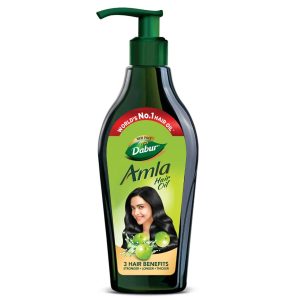
Amla, also known as the Indian gooseberry, is a powerhouse of nutrients that may benefit hair health in various ways.
- Rich in vitamin C: This essential vitamin is crucial for collagen production, which is a key building block of hair follicles. Adequate vitamin C intake can help strengthen hair follicles and promote healthy hair growth.
- Essential fatty acids: Amla contains essential fatty acids, which play a role in maintaining scalp health and preventing dryness. A healthy scalp provides a favorable environment for hair growth.
- Tannins: These natural astringents may help tighten the hair follicles and prevent excessive shedding.
How to use amla for hair growth:
- Amla oil: Massage amla oil directly into your scalp for improved circulation and nourishment. You can leave it on for 30 minutes before rinsing or mix it with other carrier oils for a more diluted application.
- Amla powder: Create a hair mask by mixing amla powder with yogurt, honey, or other nourishing ingredients. Apply the mask to your hair and scalp, leave it on for 20-30 minutes, and then rinse thoroughly.
- Consuming amla: Amla is also available in juice or supplement form. However, it’s important to consult with your doctor before consuming amla, especially if you have any underlying health conditions or are taking medications, as it may interact with certain drugs.
C. Aloe Vera: To Stop Hair Loss
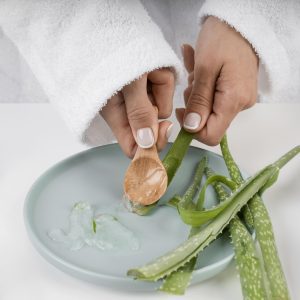
Aloe Vera is known for its soothing and moisturizing properties, aloe vera gel can be a helpful addition to your hair care routine. Its benefits for reducing hair loss and promoting hair growth stem from its:
1. Anti-inflammatory properties: Aloe vera can help soothe and calm an irritated scalp, potentially reducing inflammation that may contribute to hair loss.
2. Moisturizing properties: A well-hydrated scalp is essential for healthy hair growth. Aloe vera gel’s hydrating properties can help keep the scalp moisturized and prevent dryness, which can lead to breakage and hair loss.
How to use aloe vera for hair growth:
- Extract fresh gel: Cut an aloe vera leaf open and scrape out the clear gel. You can also purchase store-bought aloe vera gel, but make sure it’s pure and doesn’t contain added ingredients.
- Apply to scalp: Apply the aloe vera gel directly to your scalp, focusing on areas with thinning hair.
- Leave on or rinse: You can leave the gel on your scalp for 30 minutes to an hour before rinsing it out with shampoo, or simply rinse it off immediately after massaging.
- Frequency: Use aloe vera 2-3 times a week for optimal results.
D. Neem Oil To Reduce Hair Fall
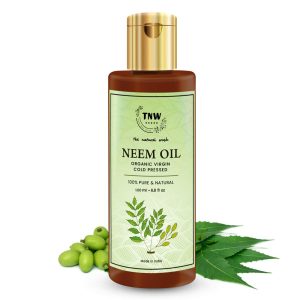
Neem leaves are a natural source of antifungal and antibacterial properties, making them a potential hair loss remedy. These properties can be beneficial for:
1. Combating dandruff: Dandruff can contribute to hair loss by creating an unhealthy environment for hair follicles. Neem’s antifungal properties may help combat dandruff and promote a healthier scalp environment.
2. Treating scalp conditions: Neem’s antibacterial properties may be helpful in addressing certain scalp conditions, such as bacterial folliculitis, which can contribute to hair loss.
Use: Apply neem oil diluted with a carrier oil to the scalp, or use neem leaf powder in a hair mask (consult a doctor before consumption).
Check out on Amazon- TNW-THE NATURAL WASH Multipurpose Pure Neem Oil for Hair & Skin –
E. Fenugreek: (Methi Dhana) to Reduce Hair Fall

Fenugreek is a seed used in various cultures for culinary and medicinal purposes. It’s a rich source of protein, iron, and other nutrients like vitamin C and potassium, which are essential to reduce hair fall and stop hair loss for healthy hair growth.
Potential benefits for hair:
1. Stimulates hair growth: Studies suggest that fenugreek seeds may promote hair growth by increasing levels of insulin-like growth factor 1 (IGF-1) in the scalp. IGF-1 plays a crucial role in hair follicle stimulation and growth.
2. Improves hair thickness: Fenugreek is also a good source of protein, which is a building block of hair. Consuming enough protein is essential for maintaining strong and healthy hair.
How to use fenugreek for hair growth:
1. Hair mask: Soak fenugreek seeds in water overnight, grind them into a paste, and apply the paste to your scalp and hair. Leave it on for 30 minutes before rinsing it off with shampoo.
2. Hair rinse: After shampooing, boil fenugreek seeds in water for 10 minutes. Let the solution cool, then strain it and use it as a final rinse for your hair.
3. Supplement: Fenugreek is also available in capsule form. Consult a healthcare professional for the appropriate dosage.
Check-out on Amazon – Pro Nature Organic Fenugreek Methi, 200g
F. Hibiscus: To Reduce Hair fall
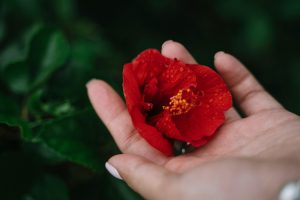
Hibiscus is a vibrant flower used in traditional medicine for various purposes, including hair care. It’s rich in antioxidants and other beneficial compounds that may contribute to healthy hair and reduce your hair fall and stop hair loss.
Potential benefits for hair:
1. Promotes hair growth: Studies suggest that hibiscus extract may stimulate hair follicle activity and increase hair growth. This could be due to its content of anthocyanins, a type of antioxidant with potential hair growth-promoting properties.
2. Prevents hair loss: Hibiscus may also help prevent hair loss by inhibiting the activity of 5-alpha reductase, an enzyme that contributes to hair loss in some individuals.
How to use hibiscus to reduce hair fall:
- Hair mask: Grind dried hibiscus flowers into a powder. Mix the powder with yogurt, honey, or carrier oil like coconut oil to create a paste. Apply the paste to your scalp and hair, leave it on for 30 minutes, and then rinse it off with shampoo.
- Hibiscus hair tea: Steep dried hibiscus flowers in hot water for 10-15 minutes. Let the tea cool, then use it as a final rinse after shampooing.
- Safety precaution: Consult a doctor before using hibiscus, especially if you are pregnant, breastfeeding, or have any underlying medical conditions.
G. Bhringraj Oil: To Stop Hair Loss

Bhringraj, also known as Eclipta alba, is an Ayurvedic herb with a long history of use in promoting hair health. While the exact mechanisms of its action are still under investigation, studies suggest it may offer several benefits:
- Reducing hair loss: Bhringraj may help reduce hair loss by inhibiting the activity of 5-alpha reductase, the enzyme responsible for converting testosterone to DHT, a hormone linked to hair loss in some individuals.
- Stimulating hair growth: Bhringraj may also stimulate hair growth by increasing blood flow to the scalp and nourishing hair follicles.
How to use bhringraj for hair:
- Bhringraj oil: Massage diluted bhringraj oil into your scalp and leave it on for 30 minutes before rinsing.
- Bhringraj powder: Make a hair mask by mixing bhringraj powder with yogurt or coconut oil, apply it to your hair and scalp, and leave it on for 30 minutes before rinsing.
- Bhringraj supplements: Consult a healthcare professional before taking any bhringraj supplements, as dosage and potential interactions with other medications need to be considered.
- Important note: While bhringraj is generally safe for most people, pregnant and breastfeeding women should consult a doctor before use.
Check-out on Amazon – Khadi Natural Bhringraj Hair Oil For Controlling Hair Fall, Nourishing Oil For Healthy Hair Growth, Paraben & Silicone-Free Suitable For All Hair Types, 210ml
H. Green Tea: For Hair Growth and Reduce in Hair Fall
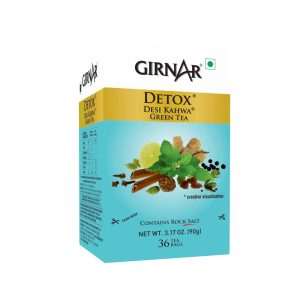
Green tea is a popular beverage rich in antioxidants, including epigallocatechin gallate (EGCG), which may offer potential benefits for hair health.
Studies suggest that EGCG may:
1. Promote hair growth: It may stimulate hair follicle activity and increase blood flow to the scalp, potentially promoting hair growth.
2. Protect against hair loss: EGCG’s anti-inflammatory and antioxidant properties may help combat oxidative stress and inflammation, which can contribute to hair loss.
How to use Green Tea for Hair:
- Drinking green tea: While there is limited evidence on the specific amount needed for hair health, consuming green tea regularly as part of your diet might offer some benefits.
- Rinsing hair with green tea: You can also try rinsing your hair with cooled, brewed green tea after shampooing. However, research on the effectiveness of this method is limited.
Check-out on Amazon – Girnar Food & Beverages Pvt. Ltd. Detox Green Tea – Desi Kahwa (36 Tea Bags) 90 gm
I. Rice Water: A Traditional Remedy for Reducing Hair Fall and Promoting Growth
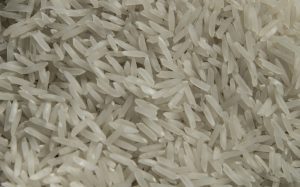
Rice water, the starchy water left after soaking or boiling rice, has been used for centuries in various cultures to promote hair health. While scientific evidence is still emerging, anecdotal evidence and preliminary research suggest it may offer some benefits for reducing hair fall and promoting hair growth.
Potential benefits:
- Rich in inositol: This carbohydrate may help strengthen hair follicles and prevent hair loss.
- Contains amino acids: The building blocks of protein, amino acids are essential for hair growth.
- May improve hair elasticity: Rice water is thought to coat hair strands, potentially making them smoother and less prone to breakage.
How to use rice water for hair:
- Soak or boil: There are two main methods:
Soaking: Rinse 1/2 cup of uncooked rice and soak it in 2-3 cups of water for 30 minutes. Strain the water and use it for your hair. - Boiling: Rinse 1/2 cup of uncooked rice and boil it in 2-3 cups of water for 15-20 minutes. Let the water cool completely before straining and using.
- Apply: After washing your hair with shampoo, use the rice water as a final rinse. Gently massage it into your scalp and hair strands.
- Leave on (optional): You can leave the rice water on your hair for 15-20 minutes for deeper penetration.
- Rinse: Thoroughly rinse your hair with clean water.
- Condition: Apply your regular conditioner to your hair as usual.
- Frequency: Use rice water 2-3 times a week for optimal results.
J. Pumpkin Seed Oil: for Reducing Hair Fall and Promoting Growth
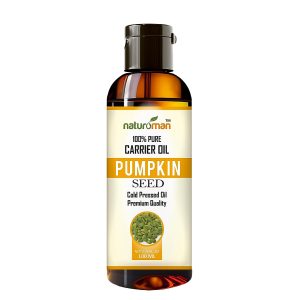
Potential benefits for hair: Pumpkin seed oil has gained popularity for its potential to reduce hair loss and promote hair growth. Studies suggest it may offer these benefits through several potential mechanisms:
Blocking 5-alpha reductase: Similar to rosemary oil, pumpkin seed oil may contain compounds that inhibit the conversion of testosterone to DHT, potentially reducing hair loss, especially in men experiencing pattern baldness.
Providing essential nutrients: Pumpkin seed oil is rich in vitamins A, B, C, and E, as well as essential fatty acids and zinc, all of which play a role in hair health and growth.
How to use pumpkin seed oil for hair Growth:
- Topical application: You can massage diluted pumpkin seed oil (2-3 drops mixed with a carrier oil) directly onto your scalp, focusing on areas with thinning hair. Leave it on for 30 minutes before rinsing or wash your hair immediately after massaging. Use 2-3 times a week for optimal results.
- Dietary supplement: Pumpkin seed oil is also available in capsule form. Consult a healthcare professional to determine the appropriate dosage for you.
- Important precautions: Consult a doctor before using pumpkin seed oil if you are pregnant, breastfeeding, or have any underlying medical conditions, as it may interact with certain medications. Conduct a patch test before applying pumpkin seed oil to your scalp to check for any allergic reactions.
Check-out on Amazon – Naturoman Cold Pressed Pumpkin Seeds Oil for Hair & Skin Care – Cold Pressed Carrier Pumpkin Oil Pure & Undiluted for Hair Care, Nails & Skin, 100 ml
Identifying Daily Harmful Ingredients to Reduce Hair Fall immediately
A. Harmful Ingredients in Hair Products that Cause Hair Fall:
While exploring natural remedies to reduce hair fall and promote hair growth, it’s also crucial to identify potential culprits in your daily hair care routine. Here are some ingredients to avoid and their potential negative effects:
Sulfates (SLS, SLES):
These harsh cleansing agents can strip away natural oils from the scalp, leading to dryness, irritation, and potentially increased hair loss. Look for sulfate-free alternatives labeled as “gentle” or “hydrating.”
Silicones:
While silicones initially provide a smooth and shiny appearance, they can build up on the scalp over time, clogging hair follicles and hindering hair growth. Go for silicone-free products labeled as “lightweight” or “clarifying.”
Parabens:
These preservatives have been linked to potential hormonal imbalances, although the research is ongoing. If you’re concerned, choose paraben-free products.
Alcohol (denatured alcohol):
This drying ingredient can exacerbate scalp dryness and contribute to hair breakage. Go for alcohol-free formulas or products where alcohol appears lower on the ingredient list.
Fragrances:
Synthetic fragrances can irritate the scalp and trigger allergic reactions, potentially leading to hair loss. Consider fragrance-free or naturally scented products.
B. Daily Routine Missteps:
Beyond hair products, certain daily habits can unknowingly contribute to hair fall:
Poor sleep:
Chronic sleep deprivation disrupts hormonal balance, which can impact hair growth and lead to hair loss. Aim for 7-8 hours of quality sleep each night.
Unhealthy diet:
Deficiencies in essential nutrients like iron, protein, and vitamins can weaken hair follicles and contribute to hair loss. Ensure a balanced diet rich in fruits, vegetables, whole grains, and lean protein.
Stress:
Chronic stress can elevate cortisol levels, which can negatively affect hair growth and contribute to hair loss. Implement stress-management techniques like exercise, meditation, or yoga.
Tight hairstyles:
Tight hairstyles like braids, ponytails, and cornrows can put excessive tension on the scalp, leading to traction alopecia, a type of hair loss. Opt for looser styles and avoid tight hairstyles for extended periods.
Excessive heat styling:
Frequent use of hot styling tools like blow dryers, straighteners, and curling irons can damage hair, leading to breakage and potential hair loss. Limit heat styling, use heat protectant spray, and explore air-drying techniques whenever possible.
By identifying and eliminating these daily culprits, you can create a healthier environment for your hair to thrive and reduce hair fall naturally and stop hair loss.
What are the Prevention to Stop Hair Loss and Reducing Hair Fall?
A. Gentle Hair Care Techniques:
- Embrace scalp massages: Regularly stimulating your scalp with gentle massages can improve blood circulation, which may nourish hair follicles and promote growth. Use your fingertips to apply light pressure in circular motions for 5-10 minutes daily.
- Natural ingredients are your friends: Opt for shampoos and conditioners free of harsh chemicals like sulfates and parabens, which can strip your hair of natural oils and contribute to dryness and breakage. Look for gentle formulas enriched with natural ingredients like aloe vera, coconut oil, and shea butter to nourish and strengthen your hair.
- Ditch the heat styling: Excessive use of heat styling tools like blow dryers, straighteners, and curling irons can damage hair, leading to breakage and hair loss. If you must use heat styling tools, apply a heat protectant spray beforehand and use the lowest heat setting possible.
- Be gentle when combing and brushing: Avoid aggressive brushing and combing, as this can pull on your hair and cause breakage. Use a wide-tooth comb on wet hair to detangle gently, and start from the ends to work your way up.
- Consider a silk or satin pillowcase: Traditional cotton pillowcases can create friction that can snag and damage your hair. Switching to a silk or satin pillowcase can reduce friction and help prevent breakage, especially while you sleep.
B. Stress Management and Sleep Hygiene:
Chronic stress can negatively impact hair health and contribute to hair loss. To effectively reduce hair fall and promote healthy hair growth, incorporating stress management techniques into your routine is crucial. Here are some tips:
- Practice relaxation techniques: Activities like yoga, meditation, and deep breathing can help calm your mind and reduce stress levels.
- Engage in activities you enjoy: Participating in hobbies or spending time with loved ones can help you de-stress and improve your overall well-being.
- Seek professional help: If you struggle to manage stress on your own, consider seeking professional help from a therapist or counselor.
Getting a good night’s sleep is essential for overall health, including hair health. During sleep, your body repairs and restores itself, including hair follicles. Aim for 7-8 hours of quality sleep each night to promote healthy hair growth and reduce hair fall.
What are the causes of Hair fall in Male and Female?
Hair loss is a common concern for both men and women, though the causes can differ slightly between the sexes. Here’s a breakdown of some common factors contributing to hair fall for each:
A. Causes of Hair Loss in Men:
Male Pattern Hair Loss (Androgenetic Alopecia): This is the most common cause of hair loss in men, also known as male pattern baldness. It’s influenced by genetics and hormonal factors, particularly dihydrotestosterone (DHT), a derivative of testosterone. DHT can shrink hair follicles over time, leading to thinning hair and a receding hairline.
- Age: As men age, hair growth slows down naturally, and hair follicles may become less productive. This can lead to gradual thinning and a receding hairline.
- Medical Conditions: Certain medical conditions, such as thyroid disorders, autoimmune diseases, and nutritional deficiencies, can contribute to hair loss in men.
- Stress: Severe or chronic stress can trigger a temporary form of hair loss known as telogen effluvium. While temporary, this type of hair loss can be significant and cause noticeable thinning.
B. Causes of Hair Loss in Women:
Female Pattern Hair Loss (Androgenetic Alopecia): Similar to men, women can also experience hair loss due to genetics and hormonal factors. While less common than in men, female pattern hair loss typically presents as overall hair thinning rather than a receding hairline.
- Hormonal Changes: Hair loss in women can be triggered by hormonal fluctuations throughout life, such as during pregnancy, childbirth, menopause, and starting or stopping birth control pills.
- Postpartum Hair Loss: Many women experience temporary hair loss after childbirth due to hormonal changes. This typically resolves within a year.
- Stress: Similar to men, women can also experience temporary hair loss due to severe or chronic stress.
- Medical Conditions: Medical conditions like thyroid disorders, anemia, and autoimmune diseases can also contribute to hair loss in women.
- Hairstyles and Hair Care Practices: Tight hairstyles, such as braids or ponytails, or harsh chemical treatments can cause hair breakage and contribute to hair loss.
It’s important to note that this is not an exhaustive list, and other factors can contribute to hair loss in both men and women. Consulting a doctor or dermatologist can help identify the specific cause of your hair loss and determine the most appropriate treatment options.
you can confidently choose products that suit your needs.

